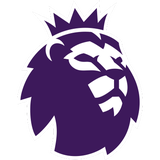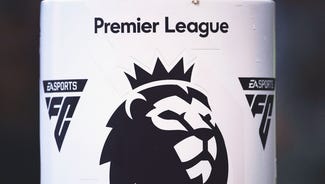
British baseball strictly minor league despite proud history
LONDON (AP) — Baseball has never been as big as soccer or cricket in Britain, but it has deep roots — by some measure, in fact, deeper than its storied history in the United States.
The arrival of the New York Yankees and Boston Red Sox in London for Major League Baseball's first games in Europe this weekend is being treated as a festival of Americana, but it may be that what has come to be regarded as America's game in fact started in England, before the revolution — or insurrection, depending on the teller — separated the colonies from the mother country.
The radical retelling of the game's history, marking another break from the foundational myth that the game began in Cooperstown, New York, is based on the relatively recent discovery of a diary that mentions a game of baseball in the very English environs of Surrey way back in 1755, long before the first recorded competitive baseball game in Hoboken, New Jersey, in 1846.
Baseball has been regarded as an American innovation, with its root in the traditional British games of rounders and the ever-popular cricket, but the diary, on public display in Surrey after being authenticated by experts, at least raises the possibility that baseball began in Britain.
The game has had spurts of popularity in England, and has followers to this day, but there's no question that regardless of where it was first played it grew to maturity in the United States, and was launched from there to the Caribbean, Asia and other parts of the world.
Britons have gorged on many aspects of American pop culture, from rock 'n' roll to fast food to Hollywood blockbusters, but baseball has not developed a mass following — in part, perhaps, because it seems impenetrable to people who didn't grow up with the sport. It appears that soccer fans find baseball too slow and cricket fans find it too fast.
Columnist Matthew Engel wrote in The Guardian that Britons have taken to the NFL and NBA but still find baseball to be "the most alien sport of all." He said the "'national pastime' has always struggled to penetrate a sea wall of bafflement and contempt."
It's not quite that simple. As in America, the game took hold in some rural areas and factory towns early in the 20th Century.
One of its most prominent early backers was the industrialist Francis Ley, who became enchanted with baseball after a visit to the United States in 1889. He introduced the game to employees at his Vulcan Works foundry in Derby and built a stadium named the Baseball Ground.
According to the website of the Derby, a soccer club that played at the Baseball Ground from 1895-1997, the Derby County nine won the English Cup in baseball in 1897.
If English baseball had taken off at that point, Ley would certainly be remembered as one of its founding fathers. Fatefully, he also spent money improving the soccer field, which proved handy when that sport surpassed baseball, even though the field was known as the Baseball Ground for more than a century until it was demolished in 2003.
There was also a strong connection between baseball and the Everton soccer club, sparked in large part by Everton chairman John Moores' passion in the 1930s for what had by then become America's game. Baseball was frequently played at the club's Goodison Park, and Moores spent much time and money trying to establish an 18-team baseball league in the greater Liverpool area.
The soccer club's website says he managed to convince many soccer players throughout Britain to take up baseball as well, and he even established a little-remembered entity known as the National Baseball Association. Not surprisingly, Everton emerged as league champs.
Other leagues were formed as well, sometimes drawing 10,000 fans, but that came to a halt with the outbreak of World War II.
Matt McDowell, a lecturer on sports policy at the University of Edinburgh, said efforts to form British leagues filled by British players have floundered in part because the sport is largely ignored by the press, which regards it as inferior to cricket and too closely linked to rounders, seen as a game for kids.
"It's very tough to have any kind of collective history of baseball in Britain," he said. "You had leagues and you still have leagues but what you don't have is any kind of collective memory of it because there's been no real national championship and it's a sport that gets no national coverage on television."
Dreams of a popular national baseball league have been put on hold, but the game's long history on the periphery of England's sporting culture has borne fruit: According to the Baseball Almanac, at least 33 players born in England have played in the major leagues.
The list ranges from Dave Brain, an infielder and outfielder who started his career with the Chicago White Sox in 1901, to Chris Reed, a left-hander who pitched two games for the Miami Marlins in 2015 before drifting back to the minor leagues.
His record? No wins, no losses. He did strike someone out.

